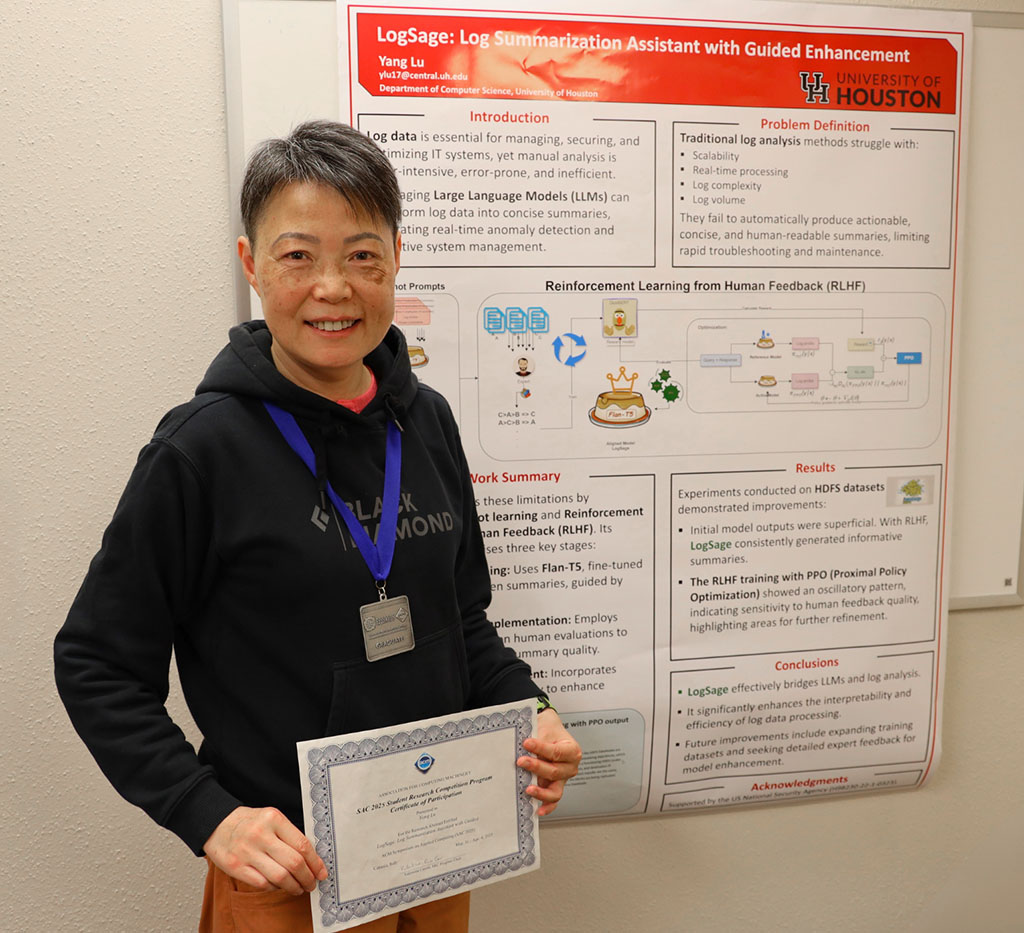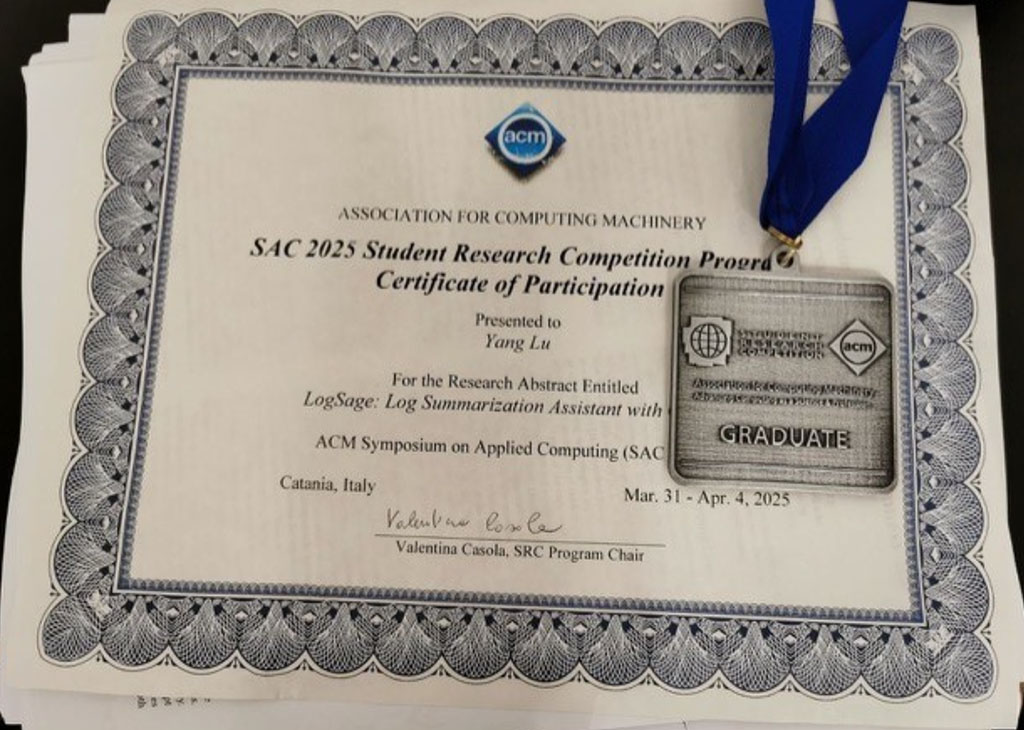With Support from the NSM Graduate Student Conference Travel Award, Ph.D. Student Yang Lu Earns International Recognition for Advancing AI-Driven Log Analysis in Cybersecurity
Yang Lu, a Ph.D. student in computer science at the University of Houston’s College of Natural Sciences and Mathematics, was honored with second place in the Student Research Competition at the 40th ACM/SIGAPP Symposium on Applied Computing, held March 31–April 4 in Catania, Sicily.

Lu’s international conference travel was supported by the NSM Graduate Student Conference Travel Award, which enabled her to present both a full research paper and a student competition poster. Her research, centered on log file analysis and cybersecurity, addresses the increasing need for intelligent tools to manage the vast volume of log data produced by modern computer systems. This work is essential for detecting potential usage anomalies that may lead to performance issues, data integrity risks or other factors that threaten the health, stability and reliability of complex software-intensive systems.
“It was a dream come true,” Lu said. “I set a goal last year to participate in the conference after attending as a proxy presenter, and this year I was able to present my own research and be recognized.”
Lu’s competition poster, LogSage: Log Summarization Assistant with Guided Enhancement, explored using large language models to automatically summarize log files from diverse systems. The research aims to streamline anomaly detection and reduce reliance on manual human analysis. Her full paper, an extension of this project, introduced a method for integrating retrieval-augmented generation (RAG) into log file analysis, enabling a global view of system behavior, and improving decision-making for IT administrators.

“Logs are massive and generated continuously,” Lu said. “We want to provide human-readable summaries that help decision-makers understand what's happening across multiple systems—not just one isolated log file.”
Lu credits her success to strong mentorship and institutional support. She acknowledged her advisor, Dr. Stephen Huang, for his guidance and Dr. Jeremy May for supporting her travel to the conference. She also highlighted inspiration gained from Dr. Sen Lin’s machine learning course, where the concept for LogSage was initially developed.
Attending the symposium, hosted by the University of Catania and sponsored by the ACM Special Interest Group on Applied Computing, offered Lu the opportunity to connect with global researchers and receive direct feedback on her work.
“Talking with attendees, judges and experts helped me refine my thinking,” she said. “It opened my eyes to new possibilities.”
Returning to academia after raising a family, Lu said her decision to pursue a Ph.D. was driven by a desire to remain current in a rapidly changing field. “Technology moves fast, and I didn’t want to be left behind,” she said. “I may be older than my classmates, but I’m very self-driven—and that keeps me learning and feeling young.”
Lu encourages other graduate students to take initiative beyond coursework. “You need to develop your own research identity. A Ph.D. is not just about grades—it is about independent thinking and the ability to define and pursue your own path.”
Her participation in the international symposium and recognition in the student research competition underscores the growing impact of UH NSM graduate students in the global research community.
Exploring AI’s Personality
In addition to her work on cybersecurity and log file summarization, Yang Lu is also contributing to the emerging field of AI personality research. A recent article in Science News highlights her experiment with OpenAI’s GPT-3.5, where she demonstrated how chatbots may exhibit personality-like traits—such as agreeableness—when interacting with users. Lu and her collaborators are developing new methods to evaluate these traits in large language models, aiming to better understand how personality design can shape AI behavior and improve human-machine interactions.
- Kristoffer Smith, College of Natural Sciences and Mathematics